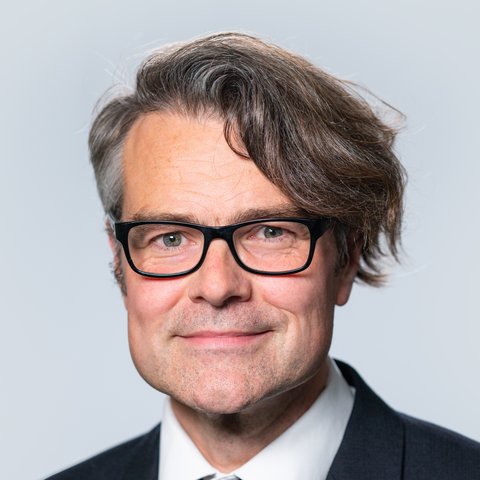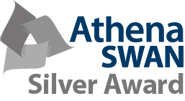David C Thomas MA MB BChir PhD MRCP (Neph)
Professor of Renal Medicine & Principal Investigator, CITIID
Interview July 2024 – Emily Thomas (PhD student, co-chair Communications and Outreach Committee)
Where are you from and where did you complete your education?
I grew up in Swansea in South Wales, Dylan Thomas’s ugly, lovely town. I went to school in Llanelli which is the heartland of Welsh rugby excellence but I did not contribute to that reputation owing to a chronic lack of pace.
What does your lab do?
The immune system makes very small amounts of hydrogen peroxide and hypochlorous acid, basically bleach or reactive oxygen species, to kill bacteria and fungi. You need a complex of proteins to do that called the NADPH oxidase (NOX2). We study a protein that we called EROS (Essential for Reactive Oxygen Species) that makes this complex assemble. I started this work in Cambridge with Ken Smith and Gordon Dougan. If you lack EROS, due to rare mutations, you develop a severe immune deficiency. This shows us how important it is, and now we are focused on exactly how EROS works and whether there are other proteins like EROS that are not yet discovered.
Describe yourself in three words?
Whimsical, fearful, gregarious.
What’s in your fridge right now?
Only condiments, and hundreds of them. Unless Ocado are coming tonight.
Do you have a hidden talent?
I have an unusually strong knowledge of snooker.
What is the trait you most deplore in others?
Unkindness.
What inspired you to pursue a career in science?
I think I am just curious and nosy! A couple of important early influences were a book called “And the Band Played on” about the early years of the HIV epidemic and some of the people that taught me as an undergraduate.
Who was the most influential person that taught you as an undergraduate?
There have been many influential people but probably Professor Margaret Stanley, who did very important work on HPV (Human papillomavirus) Vaccines stands out. She was my undergraduate supervisor for pathology when I was studying medicine at Christ’s. Margaret taught us pathology and she conveyed how interesting immunology is and that essential balance between host defence and tolerance to self.
What advice would you give to aspiring scientists?
Science is time-consuming, and there are many highs and lows, and so it helps if what you study is your hobby in some way. There are much more profitable and less time-consuming ways to spend your time. It’s a bit like gambling: when the fun stops, stop!
What is the best and worst advice someone has given you?
Best advice – be hard on your ideas and try not to shed pseudo-light on non-problems. I don’t know whether I follow it.
Worst-advice – “you are good at impressions and should do more of them”
Can you share a memorable moment from your career?
I was working on Level 5 of the Department of Medicine using Prof Edward Chilvers’ luminometer. A clinician scientist in his lab, Jatinder Juss, taught me how to do reactive oxygen species assays on it. I would hardly call this moment “the double helix”, but in our lab we work on EROS which controls the generation of reactive oxygen species. We didn’t know that when we started working on it and it wasn’t obvious when we first started working on it. So, the most memorable moment is the first time that I demonstrated it. It was black and white, and subsequently so was the western blot that demonstrated that there is no NOX2 complex (which makes reactive oxygen species) in EROS deficiency. So that was the answer – I should have got there quicker!
Now what about your most embarrassing moment?
I have been caught several times doing impressions of people by the people I am impersonating. I regret nothing.
What’s the most interesting place you’ve visited?
My dad was an urban geographer and used to make me help him with field work in central business districts in decline, like the outskirts of Minneapolis and the suburbs of Edmonton, Alberta are some of the highlights. It’s more interesting than it sounds. I promise.
Where is your favourite place in Cambridge?
Now there I have too many. I think having a beer outside on the wall by the Mill when it’s really sunny is hard to beat.
If you could time travel, where and when would you go?
I would have liked to have seen the “Rumble in the Jungle”, in Kinshasa in 1974.
What’s the worst thing that someone said to you?
“Dave, you are very good at saying things that are plausible. I am not sure how good you are at saying things that are right.”
Finally, what is your favourite immune cell?
I think it is probably regulatory T cells. I was working on T cell regulation during my PhD and there was a lot of debate about whether a specialised cell for suppressing T cell responses existed. Then Foxp3 as a key regulatory T cell transcription factor was published. I think that’s a seminal moment in immunology. The fact that Foxp3 was published when I was doing my PhD and I was working on them at the time made it very exciting. They went in and out of fashion until they finally existed.


